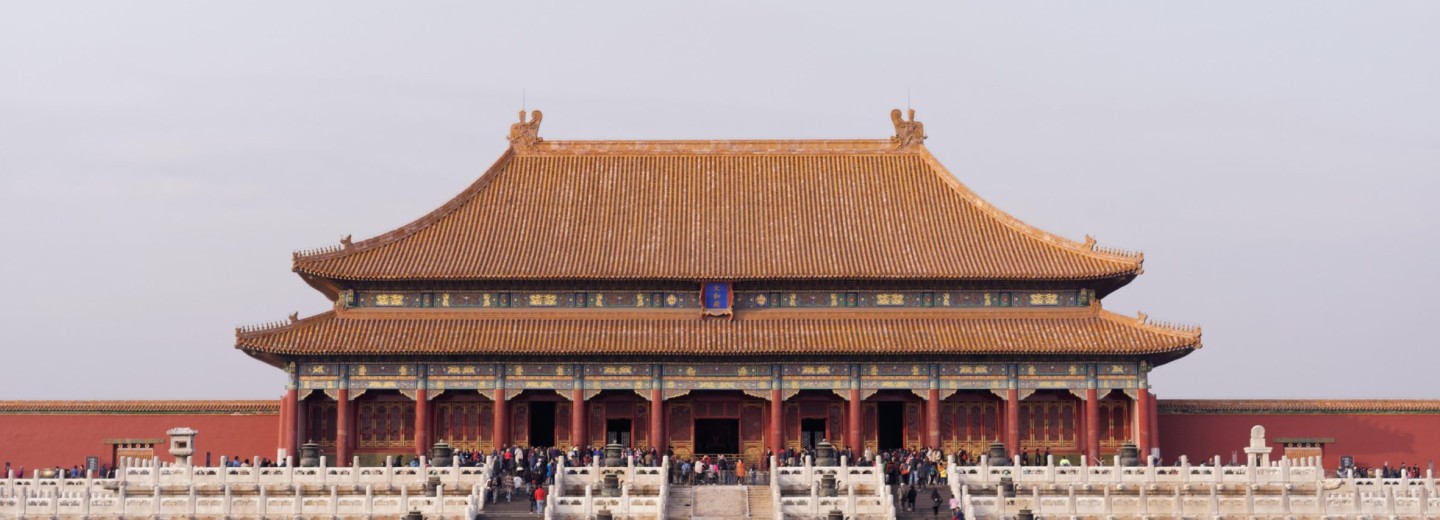China news 13th July 2020
During the Taiping Rebellion, why did Britain choose to help the Qing Dynasty?
The Taiping Heavenly Kingdom Movement (known as the Taiping rebellion) was an internal disorder in the mid-Qing Dynasty. Although it only lasted for 20 years, it deeply affected the development of Chinese history. The expansion of the Taiping Heavenly Kingdom in more than 600 cities and 18 provinces was by no means the result of the peasant uprising alone.
Their power was considerable, but their process of entering Shanghai was not as smooth as they expected. In addition to the influence of the Qing army, it was also constrained by foreign forces, which ultimately led to the defeat of the Taiping rebellion.
(Historians believe that the number of casualties was over 40 million.)
Among the many foreign forces, the most influential were the British who first fought against the Qing Dynasty. But why did the British choose to stand with the Qing Dynasty in the Taiping Heavenly Kingdom Movement, instead of helping the Taiping Heavenly Kingdom, who also claimed to be fellow Christians?
We know that in international diplomacy, there are no eternal enemies and no eternal friends. The answer is simple – benefits are everything. For the Sunless Empire (the British Empire where the ‘sun never set’), business interests were the most important; but this does not mean that Britain had chosen the side from the beginning.
In 1853, the third year since the outbreak of the Taiping rebellion, the British Foreign Minister, Lord Russell, received a report written by John Bowring, the plenipotentiary minister in China, which mentioned the British attitude towards the Taiping Heavenly Kingdom:
Regardless of its actions and its movements, I have decided between my honour and destiny that I will never interfere with the Chinese government in any way. Because I believe that my intervention may have completely different results at first, but it is enough to prolong its war.
In other words, at the beginning, the British government intended to remain neutral in China. However, as the war evolved, Britain had to change its mind.
It is highly likely that the key to changing Britain’s mind was Shanghai. Before the outbreak of the Taiping Rebellion, the United Kingdom obtained many commercial benefits in Shanghai due to the Opium War, especially in Hong Kong.

A few years later, in order to extract more benefits, the United Kingdom requested a contract with the Qing court, but failed. Later, through the outbreak of the Yarrow incident, the British and French formed a coalition to attack Beijing. This was the Second Opium War. At that time, Britain’s attitude towards the Taiping Heavenly Kingdom was not changed by the Qing Dynasty War, mainly because the British battlefields in China’s north and south were separated, and the people in charge were also different.
However, when the Taiping Army threatened Shanghai, the British attitude changed. At the same time, Britain had successfully signed the Tianjin Treaty and the Beijing Treaty with the Qing Dynasty in Beijing. The Qing Dynasty promised to grant the British more rights and deepened the willingness of the British and Qing Dynasty to attack the Taiping Army together.
Why did Shanghai influence British decision-making?
First, from the perspective of maintaining order, the only purpose for Britain to come to China is to make money and trade. If you want to make money well, you must first have a good social order.
(Note – this is key to understanding the Chinese approach to governance today also.)
Since Shanghai became a foreign trading port, it was China’s most important city. Even on the Bund, (Shanghai’s main waterfront street) the consulates of various countries had their own rules. The common point is that if the foreign flag is hung, it will not actually return to Qing Dynasty jurisdiction. So, when Britain had the baby of Shanghai, of course it hoped that it would not be troubled by war.

When the Taiping Army captured the cities in China one by one, many wealthy and business people, in order to avoid being affected by the war, flooded into Shanghai to become refugees and sought protection from foreign forces.
Not only that, but the war itself posed a direct threat to Shanghai. When the Taiping Army announced that it would win Shanghai, not only the British but other foreign merchants were also worried. They worried that their investment in Shanghai would vanish overnight. Therefore, from the perspective of maintaining order, it was reasonable for the British to attack the Taiping Army for self-protection.
But in addition to maintaining social order, far-reaching commercial interests were the reason that influenced the final decision of the United Kingdom to join forces with the Qing Dynasty.
The purpose of Britain in China was nothing more than commercial interest. Since tea was introduced into Britain, it greatly changed British habits and became a necessity for the British. As a result, the British government imposed a 100% import tax on tea, and the huge income from tea made the UK attach great importance to the tea trade.

While buying large quantities of tea from China, Britain also hoped to balance its trade with China; opium was the selected commodity. The Qing dynasty bought opium and the British bought tea.Both sides needed each to maintain trade balance.(The author implies that it was a mutually beneficial arrangement. It was not. The British needed tea and they paid for it in ‘poison’ because they had no silver.)In addition to these two commodities, Britain used drafts to buy cotton from the United States. The United States exchanged British drafts for American drafts and used them to buy Chinese tea; China exchanged the American drafts and used them to buy opium from the British.
However, the Taiping Heavenly Kingdom blocked British fortunes, involving the two trades of opium and tea at a time and directly restricted the British people’s life. Therefore, the reason why the British decided to attack the Taiping Army was in the interest of trade.
(Interestingly, there is good evidence that British soldiers fought on both sides. Alex Gouzoulesmakes this clear.)
The reasons for the British attack on the Taiping Heavenly Kingdom are very good. Especially after signing the Tianjin Treaty and the Beijing Treaty with the Qing court, they not only had various privileges, but they could even freely trade and import opium.
With the assistance of the British and other foreign armies, the Qing Dynasty successfully defeated the Taiping Heavenly Kingdom Movement. However, from the perspective of history, this does not seem to have been a welcome thing for the old Qing Dynasty.
Soon after it was divided by foreign forces and collapsed.
Source: known.ifeng.com.
Possible effects of the pandemic
In our second story, we look at the possible effects of the pandemic of misinformation sweeping the West about China. Have the reasons why Chinese students choose to study overseas now dissipated? Will Western boycotts and media antagonism mean that young Chinese will no longer want to study in the West? It seems likely.

Australian Media Survey: Less than half of Chinese students plan to return to Australia to study, what is the reason?
Only 40% of Chinese students who planned to study abroad still plan to study abroad a recent survey has revealed. Less than half of the Chinese students studying abroad plan to continue their studies after travel is reopened. This is the conclusion made after investigating 1,012 students in China from June 5 to 15.The findings are not surprising. As tensions between China and some Western countries have increased, Chinese parents are increasingly concerned about the safety of their children abroad (including the United States and Australia) and the discrimination they may suffer. The COVID epidemic appears to have accelerated this trend.
The questionnaire asked respondents to indicate which concerns will affect whether they will study in Australia and other countries during the post-epidemic period. The first group includes 304 students who have studied in Australia but cannot return to school due to travel restrictions. The second group is students who have never studied abroad but had planned to study abroad in the next three years before the outbreak.
Among the two groups of respondents, not many think that more expensive air tickets, China’s lack of freedom, and online classes are the key factors that affect their decision to study in Australia. But these two groups of students responded differently to some specific factors.
The first group of students believe that the following factors are more important to their decision:
- compared with graduates from top domestic universities, overseas returnees with Australian degrees are not more competitive in the Chinese job market;
- living in China is more convenient, safe and easy. No need to go abroad to endure hardships;
- China’s political stability and economic prospects have improved;
- there is less opportunity to find a job in China with an Australian degree;
- if you can be taught online, there is no need to study abroad.
The second group of students believed that the following factors were critical:
- the media reported cases of Chinese people experiencing “discrimination” or “abuse” in Australia;
- the deterioration of Sino-Australian relations;
- the media did not see many successful cases of Australian returnees;
- Australian universities. The COVID epidemic has lowered admission standards for foreign students;
- Chinese employers believe that the value of Australian degrees is not high compared to other English-speaking countries, especially the United States and the United Kingdom. A Chinese student studying at the University of Sydney said: “We are customers and the degree is a commodity. We pay tuition for the degree. What if the commodity loses its value? The customer will definitely leave.”
The COVID epidemic has had a negative impact on the number of Chinese students who may study in Australia. But this downward trend started long before the outbreak.
(The author is Marina Zhang, an associate professor of innovation and entrepreneurship at Swinburne University of Technology, Australia.)
Source: oversea.huanqiu.com.
Worked on the article:

Wanlikhang





